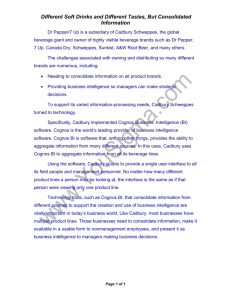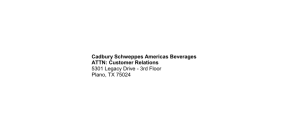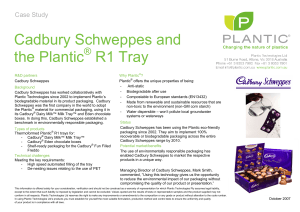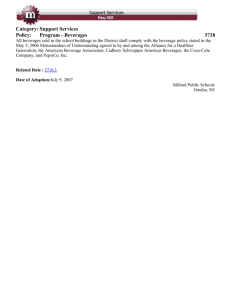Case Study 2 Cadbury Schweppes Production Method
advertisement
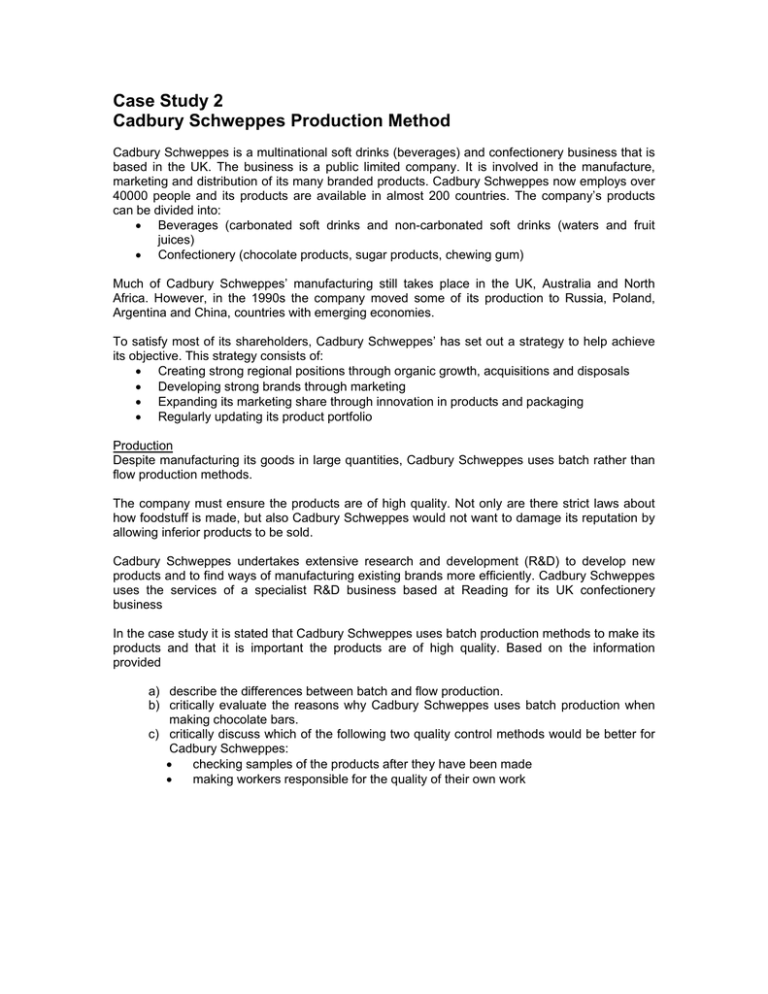
Case Study 2 Cadbury Schweppes Production Method Cadbury Schweppes is a multinational soft drinks (beverages) and confectionery business that is based in the UK. The business is a public limited company. It is involved in the manufacture, marketing and distribution of its many branded products. Cadbury Schweppes now employs over 40000 people and its products are available in almost 200 countries. The company’s products can be divided into: • Beverages (carbonated soft drinks and non-carbonated soft drinks (waters and fruit juices) • Confectionery (chocolate products, sugar products, chewing gum) Much of Cadbury Schweppes’ manufacturing still takes place in the UK, Australia and North Africa. However, in the 1990s the company moved some of its production to Russia, Poland, Argentina and China, countries with emerging economies. To satisfy most of its shareholders, Cadbury Schweppes’ has set out a strategy to help achieve its objective. This strategy consists of: • Creating strong regional positions through organic growth, acquisitions and disposals • Developing strong brands through marketing • Expanding its marketing share through innovation in products and packaging • Regularly updating its product portfolio Production Despite manufacturing its goods in large quantities, Cadbury Schweppes uses batch rather than flow production methods. The company must ensure the products are of high quality. Not only are there strict laws about how foodstuff is made, but also Cadbury Schweppes would not want to damage its reputation by allowing inferior products to be sold. Cadbury Schweppes undertakes extensive research and development (R&D) to develop new products and to find ways of manufacturing existing brands more efficiently. Cadbury Schweppes uses the services of a specialist R&D business based at Reading for its UK confectionery business In the case study it is stated that Cadbury Schweppes uses batch production methods to make its products and that it is important the products are of high quality. Based on the information provided a) describe the differences between batch and flow production. b) critically evaluate the reasons why Cadbury Schweppes uses batch production when making chocolate bars. c) critically discuss which of the following two quality control methods would be better for Cadbury Schweppes: • checking samples of the products after they have been made • making workers responsible for the quality of their own work
